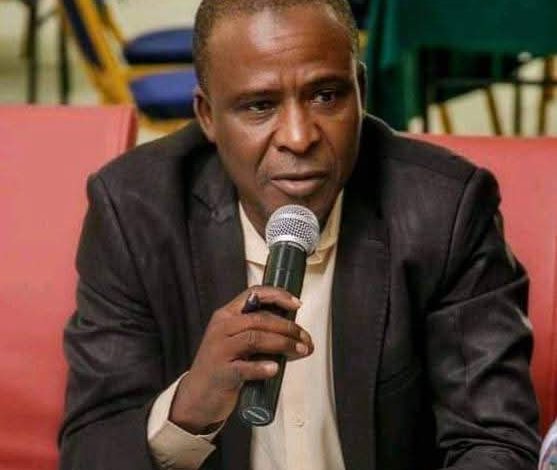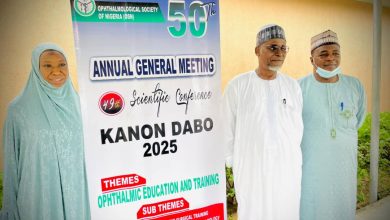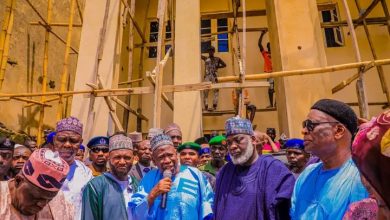
The Centre for Information Technology and Development (CITAD) has joined the global community to commemorate Development Data Day, also known as World Development Information Day, by calling for urgent investments in inclusive, transparent, and people-centered data systems across Nigeria.
The global observance, instituted by the United Nations General Assembly, highlights the transformative role of data in addressing development challenges and achieving the Sustainable Development Goals (SDGs). CITAD marked the occasion by urging Nigerian policymakers and stakeholders at all levels to prioritize data generation, accessibility, and application for impactful development planning.
In a statement signed by its Executive Director, Y.Z. Ya’u, CITAD emphasized that accurate and disaggregated data is essential in tackling Nigeria’s persistent issues, including insecurity, governance inefficiencies, poor health systems, environmental degradation, and the growing effects of climate change.
Read Also:
Provost Gwaram Unveils FCAPT Progress, Seeks Urgent Completion of Bunkure Campus
This year’s theme, “Advancing Global Cooperation for Sustainable Development,” resonates strongly in Nigeria, where poverty, unemployment, inequality, and limited access to healthcare and education are further compounded by fragmented and outdated data systems. CITAD raised concerns that the absence of reliable, inclusive data hampers evidence-based policymaking and perpetuates the exclusion of vulnerable populations—particularly women, youth, and persons with disabilities.
“Nigeria’s data ecosystem is in dire need of reform. The country continues to face significant deficits in timely, gender-disaggregated, and geo-specific data. Without these, national development plans risk being misaligned and ineffective,” Ya’u said.
According to a 2022 study by the Universal Service Provision Fund (USPF), over 27 million Nigerians in 97 underserved communities still lack access to the internet. This digital divide, now exacerbated by the 2025 mobile data tariff hikes, poses a major barrier to inclusive participation in the digital economy and civic life.
Despite these challenges, CITAD highlighted notable progress through its community-based interventions. Its Digital Livelihood Programme, launched in 2016, has trained hundreds of women and girls in Northern Nigeria in web design, digital marketing, and data literacy. The organization has also piloted community networks in collaboration with international partners, including the UK’s FCDO Digital Access Programme and the Association for Progressive Communications (APC), bringing connectivity to previously unserved regions of Kano, Bauchi, Kaduna, and Abuja.
These grassroots initiatives, CITAD noted, have also prompted policy engagement with key agencies such as the Nigerian Communications Commission (NCC) and the National Information Technology Development Agency (NITDA).
Further, CITAD has held regular trainings in data analysis for government officials, civil society actors, and academics—building capacity in the use of tools such as Stata, R, and Python for development planning and policy advocacy.
Ya’u cited encouraging developments, such as the Bauchi State government’s allocation of land to CITAD for rural digital centers, as evidence that community-led solutions are gaining recognition.
Beyond CITAD’s efforts, national initiatives like the Federal Government’s 3 Million Technical Talent (3MTT) Programme, implemented through the Ministry of Communications and NITDA, are training young Nigerians in areas like data science, cybersecurity, and artificial intelligence—key steps toward a more knowledge-based economy.
CITAD concluded its statement with several urgent recommendations.
Government at all levels must significantly increase investment in data infrastructure and human capital development. Funding should be allocated for the modernization of data systems, training of personnel, and deployment of digital tools that enable real-time and inclusive data collection, especially in underserved regions.
There is also a need for greater collaboration and standardization across Ministries, Departments, and Agencies (MDAs), with the adoption of unified data protocols to improve coordination and policy coherence.
CITAD called for formal recognition and funding of community networks as part of national ICT policy, to bridge connectivity gaps in rural areas. These networks, the organization stressed, should be viewed as complementary to mainstream telecommunications infrastructure.
Equally important is digital equity and data literacy. Expanding digital tools and training—particularly for women, youth, and persons with disabilities—will ensure broader participation in the data economy. Existing initiatives like 3MTT should be decentralized and scaled nationwide.
CITAD also urged institutionalization of open data practices. Government agencies must commit to transparency and support the development of civic tech innovations that promote accountability and citizen engagement.
To strengthen Nigeria’s capacity for data analysis and visualization, more investment is needed in training civil servants, researchers, and CSOs in the use of modern analytical tools. CITAD’s experience shows that such efforts can directly enhance governance and public service delivery.
CITAD emphasized that data is not merely a technical issue, but a governance and human rights imperative. “Without inclusive, accurate, and accessible data, Nigeria cannot achieve the 2030 Agenda or ensure that no one is left behind,” Ya’u said.
As part of its ongoing commitment, CITAD pledged to continue supporting citizen-led accountability, digital rights, and inclusive data ecosystems.



